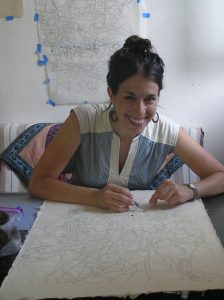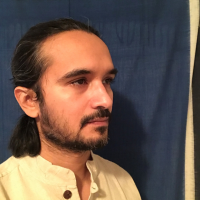CAA News Today
Meet the 2018 CAA Campus Ambassadors
posted by CAA — December 05, 2018
Launched this fall, the CAA Ambassador Program is now in full swing. CAA Ambassadors are representing the organization in New York and Chicago and giving presentations to their fellow classmates and students in nearby schools. Meet the inaugural class of ambassadors below.
Interested in becoming a future CAA Ambassador? Learn more here.
Rikki Byrd
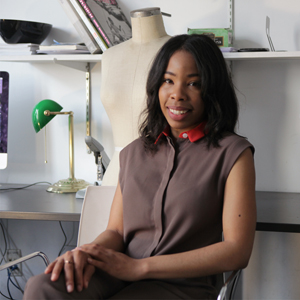
Rikki Byrd is a writer, educator and scholar, with research interests in Black studies, visual culture, fashion history and cultural studies. Her research has appeared at Art Basel: Miami and has been published or is forthcoming in various academic journals and books. She has also written for Teen Vogue, Art.sy, and Hyperallergic, among several other media outlets. She has lectured and participated in panel discussions with Google and The Council of Fashion Designers of America, Parsons School of Design, Junior High! in Los Angeles and Saint Louis Art Museum. Most recently, Rikki was a faculty member at Washington University in St. Louis in the Sam Fox School of Design & Visual Arts and the African and African American Studies department. She is currently a PhD student in African American Studies at Northwestern University.
J. English Cook
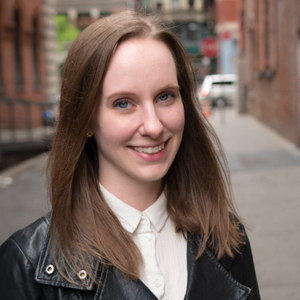
J. English Cook is a PhD candidate at the Institute of Fine Arts, NYU, where she specializes in intersections between architecture, cinema, and urban theory. Her dissertation examines the impact of cinema on the postwar spread of phenomenology, particularly as expressed in architects’ re-articulation of notions of spatial experience. She previously received an MA with distinction from the Institute of Fine Arts and a BA with highest honors from Williams College. A native of Atlanta, Georgia, she is currently the Graduate Curatorial Assistant at the Grey Art Gallery, NYU, and has worked as a Curatorial Assistant in Modern and Contemporary Art at the High Museum, Atlanta, and as the Commissioner’s Assistant for the US Pavilion at the 2010 Venice Architecture Biennale. She has produced performances at Momentum Worldwide, a time-based media gallery in Berlin, and has interned in curatorial departments at the Museum of Modern Art, the Whitney Museum of American Art, and the Williams College Museum of Art.
Rebecca Pollack
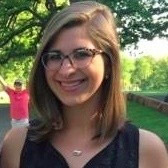
Rebecca Pollack is a doctoral candidate in art history at the CUNY Graduate Center. Her dissertation “Contextualizing British Holocaust Memorials and Museums: Form, Content, Politics,” examines the publicly funded Holocaust commemorative projects in Britain. She currently holds fellowships from the Memorial Foundation for Jewish Culture, the Jewish Studies Center at the CUNY Graduate Center, and the Paul Mellon Centre for British Art.
Mia Rubin
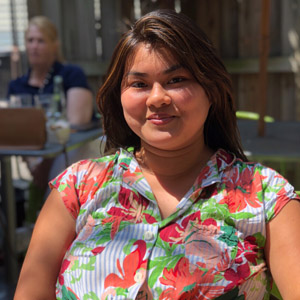
Mia Rubin is a recent Parsons School of Design graduate. Mia is the Events and Conference Programming Intern at CAA and one of CAA’s newest ambassadors. She will assist with planning the Annual Conference. Mia will help organize pre-conference workshops, key conversation panels, events for students, and museum tours. She will research and help develop workshops and programs throughout the year.
Urooj Shakeel
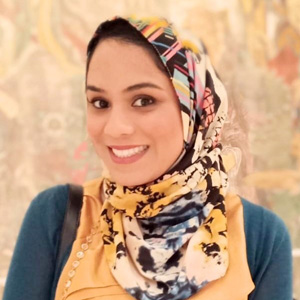
Urooj Shakeel is a graduate student at the School of the Art Institute of Chicago in the Master of Arts in Arts Administration & Policy program. She is also the Leadership Investment and Communications Field Fellow at The Field Foundation of Illinois. Currently, Urooj is working on her thesis project and is designing a library exchange box in the shape of a Pakistani truck that is painted in the traditional art form known as Truck Art. This project examines activating public space for educative functions on Chicago’s Devon Avenue for preadolescents. As a leader, Urooj also serves on the SAIC Graduate Advisory Panel, working closely with the Graduate Dean’s Office to bring attention to graduate student interests through information sharing and problem solving. She earned her BS in Marketing and BA in Art History from Wayne State University in Detroit, Michigan.
CAA Announces Campus Ambassador Program
posted by CAA — September 24, 2018
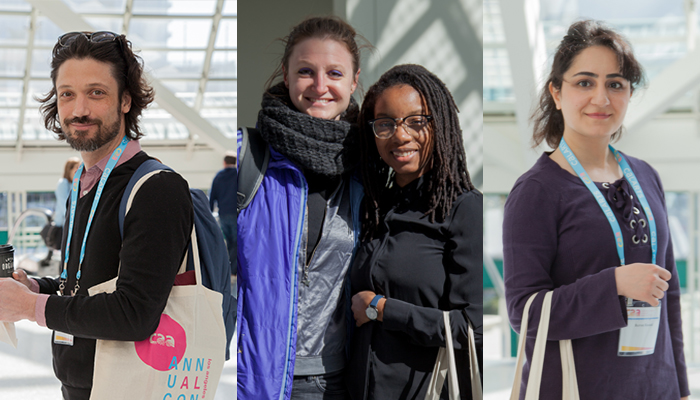
CAA 2018 Annual Conference attendees. Photography by Rafael Cardenas
Students have always been vital to CAA. Our student membership, which is nearly one quarter of our entire membership, has always been vocal, engaged, and eager. This fall we are looking to our students to help carry CAA into the future with the launch of the CAA Ambassador Program.
CAA is seeking Ambassadors in the New York, Boston, and Chicago areas to represent CAA and give short talks about the organization to their fellow classmates and students in nearby schools. The six selected Ambassadors will be compensated for each talk and given a complimentary CAA Annual Conference registration and one-year CAA membership at the student level. Ambassadors will collect feedback at their talks and have check-ins with CAA staff leading the project.
To be considered for the CAA Ambassador role, applicants must be currently enrolled in a visual arts-focused program at a university or college in the New York, Boston, or Chicago area. Applicants should be in their junior year or higher. Master’s degree, Master of Fine Arts, and PhD candidates are encouraged to apply. Familiarity with CAA and its programs is necessary for this role. Candidates should feel enthusiastic about spreading the word about CAA and feel comfortable speaking in front of groups. The Ambassador role is a two-semester commitment (fall and spring) with a maximum of five talks given on campuses each semester.
To be considered for the CAA Ambassador Program, please submit your resume or CV, cover letter expressing your interest, and one reference to Alison Chang at achang@collegeart.org.
Applications will be accepted until the positions are filled.
2018 Professional Development Fellowships for Graduate Students Now Open
posted by CAA — August 01, 2018
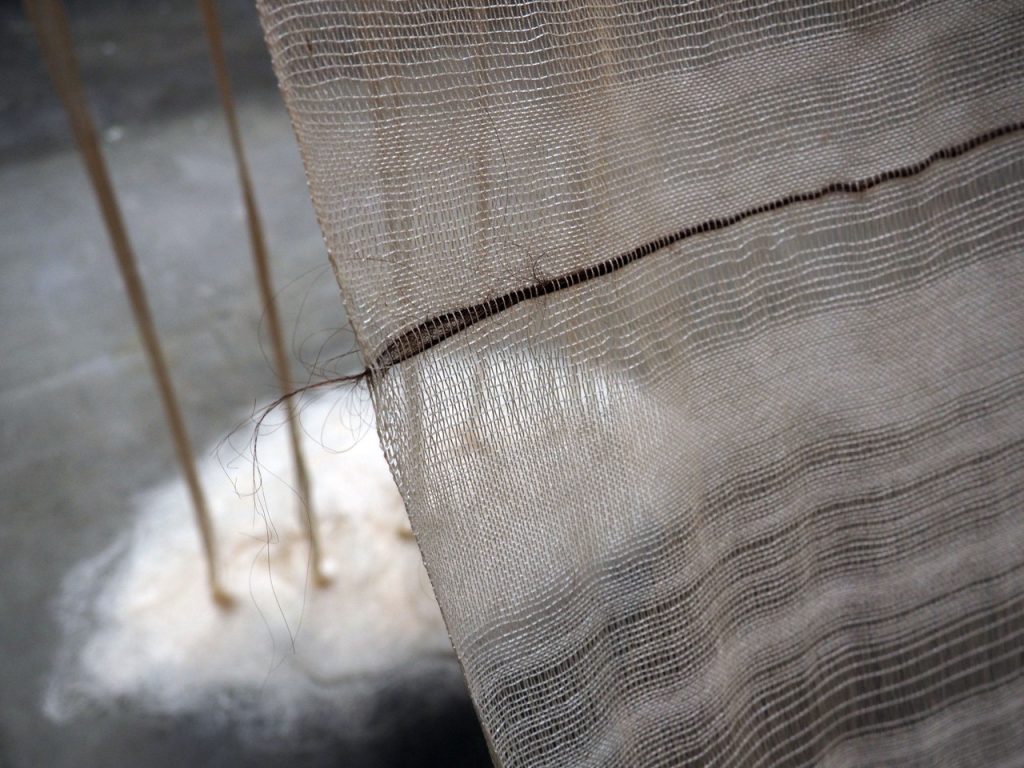
Brenna K. Murphy, Grief Work (Shroud). Detail. Cotton yarn and artist’s hair, 100 ft x 40 in. 2017 Professional Development Fellow in Visual Art.
The Professional Development Fellowships program supports promising artists, designers, craftspersons, historians, curators, and critics who are enrolled in MFA, PhD, and other terminal degree programs. Fellows are honored with $10,000 unrestricted grants to help them with various aspects of their work.
One award will be presented to a practitioner—an artist, designer, and/or craftsperson—and one award will be presented to an art, architecture, and/or design historian, curator, or critic. Fellows also receive a free, one-year CAA membership and complimentary registration to the Annual Conference. Honorable mentions, given at the discretion of the jury, also earn a free one-year CAA membership and complimentary conference registration.
CAA initiated its fellowship program in 1993 to help student artists and art historians bridge the gap between their graduate studies and professional careers. Past recipients include artists and thinkers such as Marin Sarve-Tarr (2015), Maggie Cao (2014), La Toya Ruby Frasier (2006), Risë Wilson (2002), Chitra Ganesh (2001), Miguel Luciano (2000), Miwon Kwon (1996), and Blake Stimson (1995), among many others.
ARE YOU ELIGIBLE?
CAA seeks applications from students who are current members; will receive their MFA or PhD degree in the calendar year 2019, following the year of application (2018 for the current fellowship cycle); and have outstanding capabilities and demonstrate distinction in their contribution to art history and the visual arts.
A jury of artists, curators, and other professionals will review all applications in fall 2018 and announce the recipients in January 2019.
HOW TO APPLY
DEADLINES
PhD Fellowship: October 1, 2018
MFA Fellowship: November 16, 2018
CONTACT
For more information about the CAA fellowship program, please contact Aakash Suchak, grants and special programs manager, at asuchak@collegeart.org.
CAA Internship Program
posted by CAA — May 31, 2018
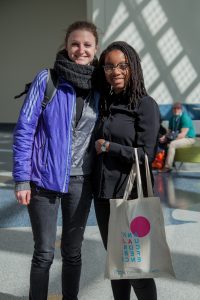
Attendees (art historian Julia Elizabeth Neal on the right) at the 2018 CAA Annual Conference in Los Angeles. Photo: Rafael Cardenas
Starting in September 2018, CAA will begin a new internship program in its New York office for undergraduate and graduate students and recent graduates. Specifically, the program is designed for those who wish to gain experience and develop skills in the following areas:
- Events and Conference Programming
- Publications and Digital Publications
- Marketing & Communications
- Membership Development
Each intern will be assigned a discrete, clearly defined project (or projects) to be completed during the internship period.
The number of hours will depend on the preference of the CAA department, but will generally expected to work 20-30 hours per week in CAA’s New York office sometime between the hours of 9:00AM to 6:00PM, Monday to Friday. All internships require a commitment of eight consecutive weeks. Interns are expected to be commit three days per week.
Eligibility
- Candidates must have successfully completed their junior year at an undergraduate college in any field of study.
- Candidates must have secure housing in the New York area which will allow them to complete the entire internship period.
- Candidates should have had some office experience and should be generally familiar with Microsoft Office, especially Word and Excel. Familiarity with Microsoft Office 365 preferable.
Internship sessions
- Fall 2018 – 8 weeks (September 15 through December 15)
- Spring 2019 – 8 weeks (January 15 through May 15)
- Summer 2019 – 8 weeks (June 1 through August 15)
There will be two interns per session.
Compensation
Each intern will receive a stipend of $500 per month paid bimonthly along with CAA’s regular payroll. Interns will be viewed as independent contractors and no deductions will be made, however a 1099 will be issued and interns are expected to pay all taxes as required under law.
Course credit
CAA will make every effort to assist successful candidates to obtain college credit, if applicable. Please coordinate with your institution’s administrator for semester credit. CAA can provide letters of confirmation and/or complete necessary forms.
To apply
Please submit a cover letter indicating your departmental interests (please rank two preferred departments), and CV to Daniel Tsai, CAA Programs and Publications Administrator: dtsai@collegeart.org. Please also list two professional references and the means to contact them via telephone or email. No phone calls please.
Applications will be accepted until positions are filled.
Events and Conference Programming Internship Tasks:
Assists with Annual Conference Special Events/Special Projects
- pre-conference workshops
- Key Conversation Panels
- events for students and emerging professionals
- Museum visits and tours
Assists with the research and facilitation of the Network Hall programming.
Assists with the research and development and implementation of workshops and programs throughout the year.
Publications and Digital Publications Internship Tasks:
- Assisting with checking layouts and copyediting
- Proofreading the reviews admin site to ensure uniformity of titles, format
- Checking all the links on Art Journal Open site to make sure they work
Marketing & Communications Internship Tasks:
- Editing and proofreading
- Visual design and layout assistance
- Social media
- Assembling press files
- Website review and content review
- Assembling press hits files
- Assembling digital metrics files
- General communications and strategy research
Membership Development Internship Tasks:
- Database cleanup
- Assist with membership growth strategy
- Renewal address file clean up
- Membership card file address clean up, folding cards, post office delivery
- Updating IP addresses indiv/org claims for missing issues
- Returned publications for indiv/orgs
- Adding/updating primary contacts for organizations
- Possible outreach to lapsed organizational members
The CAA is an equal opportunity employer and considers all candidates for employment regardless of race, color, sex, age, national origin, creed, disability, marital status, sexual orientation, gender expression, or political affiliation.
Conference Submissions for CAA 2019
posted by CAA — February 27, 2018
CAA 2019 Annual Conference
February 13-16, 2019
New York, NY
Hilton Midtown
Beginning March 1, 2018, CAA members are invited to submit the following proposals for review to the 2019 CAA Annual Conference Committee: Complete Sessions, Sessions Soliciting Contributors, and Individual Paper/Project proposals. Submissions that cover the breadth of current thought and research in art and art practice, art and architectural history, theory and criticism, studio art, pedagogical issues, museum and curatorial practice, conservation, design, new media, and developments in technology are encouraged.
The submissions portal closed on April 27, 2018.
PROPOSAL SUBMISSION TYPES
Complete Session
The organizer has complete information about the session including names and affiliations of all session participants, presentation titles, abstract texts, etc.
Session Soliciting Contributors
The organizer proposes a session title and abstract that will require a call for participation. The list of accepted Sessions Soliciting Contributors will be posted on the CAA website in late June or early July, 2018. Session organizers select papers and projects based on their own requirements. See CAA 2019 Call for Participation section below for more information.
Individual Paper/Project
An individual CAA member may submit an abstract (with title), which, if accepted, will be included in the 2019 conference as part of a composed session with others accepted in this category based on subject area or compatible content.
OPENS: March 1, 2018
DEADLINE: April 27, 2018 [closed]
Please note: To submit a proposal, individuals must be current CAA members. All session participants, including presenters, chairs, moderators, and discussants, must also be current individual CAA members. Please have your CAA Member ID handy as well as the member IDs of any and all participants as this is a required field on the submission form. Please note that institutional member IDs cannot be used to submit proposals. If you are not a current individual member, please renew your membership or join CAA.
The Annual Conference Committee members review over 800 submissions each year. They take into account subject areas and themes that arise from accepted proposals to present as a broad and diverse a program as possible. The Committee selects between 250-300 sessions for each conference and it must, at times, make difficult decisions on submissions of high merit.
CAA schedules the conference program so that there are back-to-back sessions with similar content. However, given the number of sessions, this is not always possible. All sessions are 90 minutes in length and are scheduled Wednesday, February 13, through Saturday, February 16, in the following timeslots:
- 8:30—10:00 AM
- 10:30 AM—12:00 PM
- 2:00—3:30 PM
- 4:00—5:30 PM
- 6:00—7:30 (Thursday, February 14, and Friday, February 15, only)
CAA AFFILIATED SOCIEITES AND CAA COMMITTEES
CAA Affiliated Societies and CAA Committees may each submit for one guaranteed session in the Complete Session or Session Soliciting Contributors category according to the general session proposal deadlines. Visit Affiliated Society membership for more information on participating in the CAA Annual Conference.
GENERAL PROPOSAL SUBMISSION INFORMATION
- Session and paper/project abstracts should be no more than 250 words in length.
- Please follow the Chicago Manual of Style for your submission.
- The accuracy of information in the submission is important as, if selected, it will be transferred to the conference program, abstracts booklet, website, etc., exactly as written.
KEY DATES
- March 1 – April 27: Call for Proposals (includes Complete Session, Session Soliciting Contributors, Individual Paper/Project)
- Early July: Notifications sent to all submitters
- July: Call for Participation for accepted Sessions Soliciting Contributors posted on CAA website
- End July: Notifications sent to accepted individual paper/project participants regarding composed session configurations
- Late August: Organizers of Sessions Soliciting Contributors finalize session information and notify accepted contributors
- September 4: Deadline for updated accepted session content entered into portal by original submitter for all categories for print and web publications (includes any required edits to abstracts, titles, and speaker order)
- mid-September: CAA 2019 Annual Conference schedule finalized
- October 8: CAA 2019 Annual Conference schedule posted on CAA website; online conference registration opens
- December 16: Early conference registration closes
- December 17: Advance conference registration opens
- February 8: Advance conference registration closes
FORTHCOMING CALLS FOR SUBMISSIONS
Poster Session
OPENS: May 21, 2018
DEADLINE: August 15, 2018
CAA invites proposal submissions for Poster Sessions at the CAA 2019 Annual Conference. Poster Sessions offer excellent opportunities for informal discussion and conversation focused on topics of scholarly or pedagogical research. Proposals require a description of the project (up to 250 words), with a title and member CV.
Exhibitor Session
OPENS: May 23, 2018
DEADLINE: September 14, 2018
Registered exhibitor at the 2019 conference are welcome to propose full sessions or workshops (ninety minutes in length) for inclusion in the full-conference program. These sessions should convey practical information, professional expertise, or historical/scholarly content and may not be used for direct marketing, sales or promotion of products, publications, or services or programs.
Call for Participation for accepted Sessions Soliciting Contributors
The CAA 2019 Call for Participation (CFP) for accepted Sessions Soliciting Contributors will be posted on the CAA Annual Conference website on June 29, 2018. Submissions will be accepted for review through August 6, 2018.
Beginning June 29th, 2018, single paper or project submissions in response to the CFP should be sent directly to the session chair(s)—if there is more than one session chair, send materials to both chairs. Proposals should include a proposal form (found at the end of the CFP), an abstract of your presentation, a cover letter to chair(s), a shortened CV, and work documentation (if necessary).
FREQUENTLY ASKED QUESTIONS
Q: Do I have to be a CAA member to submit a proposal?
A: All conference participants (presenters, chairs, discussants) must be CAA members to participate in the annual conference. A CAA member ID number will be requested for all conference participants in the online submission form. However, if you do not have all CAA ID numbers available for participants, you may enter them when you obtain them. If you are not a member of CAA at the time you submit the proposal, you will not be prevented from submitting. You may work on the submission in stages until the proposal deadline.
Q: Is CAA membership required to participate on a CAA session?
A: Yes, ALL session participants (presenters, chairs, discussants) must be members of CAA in order to participate in vetted conference sessions.
Q: Is CAA membership required to participate on an Affiliated Society guaranteed session?
A: Yes, all session participants (presenters, chairs, discussants) must be members of CAA in order to participate in guaranteed Affiliated Society sessions.
Q: Can someone who is not a CAA member participate in a panel?
A: We require all conference session participants to be CAA individual members.
Q: How long is a session?
A: All CAA 2019 sessions are ninety minutes in length. Please plan either session or paper/project presentations accordingly.
Q: How many people should be on a panel?
A: For a traditional ninety-minute session, we suggest one chair, four participants, and one discussant. This format allows introductions, fifteen-minute presentations, and Q&A. CAA encourages innovative session formats but all session participants must plan accordingly.
Q: How many ways can I participate in conference sessions?
A: To allow a greater number of CAA members to participate in the conference, CAA members can participate in the following roles only once during a conference: chair, presenter, discussant. They can serve in all three roles, but cannot perform any of these roles more than once. For example, they can serve as chair and present in one session, and serve as discussant at another session, but cannot present twice.
Q: Can I attend the session for free if I am presenting on that session?
A: While you cannot attend a session for free, even for the one you are presenting in, we do offer a number of conference registration options including full registration, day passes, and single session time slot tickets.
Q: Can I plan something other than a traditional panel?
A: YES! Feedback from our attendees reveals that they want to take in information and learn in formats other than several people sitting at table in front of a session room. They very much want more interaction with panel participants. We strongly encourage you to think about presenting your content in a manner other than the traditional panel format. While planning your session, you are reminded that we cannot deviate from the ninety-minute time limitation.
Q: Can I have a two-part session?
A: The Annual Conference Committee aims to include as many contributors as possible reflecting the range of scholarship and expertise. In the submission process, please make the request and the committee will evaluate this based on the number of subject areas received as well as the logistical possibilities.
Q: If I am selected to participate as an individual paper/project participant how is my session arranged?
A: Accepted individual paper/projects are organized by the Annual Conference Committee and the CAA staff into what is called Composed Sessions with other individual paper/projects based on subject area or compatible content. Since there is no formal chair for Composed Sessions a mentor is assigned to the group to provide guidance as needed. Sometimes participants identify one in the group to act as chair, sometimes a CAA member outside the group is asked to lead, other groups choose to go without this formal role.
Q: Are there sessions that are free and open to the public?
A: The mid-day time slot (12:30 – 1:30 PM) is free and open to the public. This time slot is reserved for business meetings and special conversations on hot topics for the field. There are other events throughout the conference which are also free. Check the schedule when it is posted in October for details. Please remember to check back often as the schedule is updated as the conference approaches.
For more information about session proposals for the 2019 Annual Conference, please contact Mira Friedlaender, CAA manager of programs, at 212-392-4405 or Tiffany Dugan, CAA director of programs and publications, at 212-392-4410.
Recipients of the 2017 Professional Development Fellowships
posted by CAA — January 29, 2018
CAA has awarded two 2017 Professional Development Fellowships—one in art history and one in visual art—to graduate students in MFA and PhD programs across the United States. In addition, CAA has named one honorable mention in art history and one in visual art. The fellows and honorable mentions both receive a complimentary one-year CAA membership and free registration for the 2018 Annual Conference in Los Angeles.
The recipient of the $10,000 fellowship in art history is Sooran Choi, a PhD candidate in Art History at CUNY Graduate Center. Accepting the $10,000 fellowship in visual art is Brenna K. Murphy, a MFA candidate in Studio Art at the University of Michigan Stamps School of Art & Design.
The honorable mention for art history goes to Murad Khan Mumtaz, a PhD candidate in the Department of Art and Architectural History at the University of Virginia. The recipient of an honorable mention in visual art is Courtney N. Ryan, a MFA candidate in Ceramics and Sculpture at Georgia Southern University.
Suzanne Preston Blier, president of the CAA Board of Directors, will formally recognize the two fellows and two honorable mentions at the 106th Annual Conference during Convocation, taking place on Wednesday, February 21, 2018, at the Los Angeles Convention Center.
CAA’s fellowship program supports promising artists and art historians who are enrolled in MFA and PhD programs nationwide. Awards are intended to help them with various aspects of their work, whether for job-search expenses or purchasing materials for the studio. CAA believes a grant of this kind, without contingencies, can best facilitate the transition between graduate studies and professional careers. The program is open to all eligible graduate students in the visual arts and art history. Applications for the 2019 fellowship cycle will open in the late spring.
FELLOW IN ART HISTORY
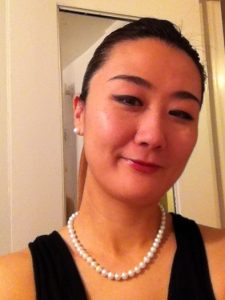 Sooran Choi
Sooran Choi
Sooran Choi will complete her PhD in Art History at The Graduate Center, City University of New York, in summer 2018. Her dissertation The South Korean “Avant-Garde,” 1967-1992: Subterfuge as Radical Agency concerns the South Korean avant-garde under Cold War military dictatorships from 1967 to 1992, and focuses on the social and political tension between the military dictatorships and the opposition of political dissidents comprised mostly of artists, students, and intellectuals, who defined themselves as “avant-garde artists.” By examining various forms of performative and conceptual art along with the recontextualized rhetoric of the avant-garde in South Korea, Choi argues South Korean artists appropriated and repurposed various Euro-American post-WWII avant-garde practices such as Fluxus, Happenings, Conceptualism, and Environmental art to mask their social and political critique to evade censorship and torture by the military juntas. A re-purposed avant-garde as covert political agency, Choi contends, proved useful for the South Korean artists to further their own social and political ends, and requires a renewed and nuanced interpretation of non-Western art historical trajectories beyond the binary of center/periphery model, and expands the existing discourse on the avant-garde.
Choi has received a Center for Place, Culture and Politics Dissertation Fellowship, and research grants from The Academy of Korean Studies, and the City University of New York. Choi’s scholarly interest in diverse art historical trajectories has carried over into her teaching as an Adjunct Lecturer at the City University of New York and the Fashion Institute of Technology (SUNY) where she teaches art history. Her past writing included topics such as East Asian artists in diaspora, alternative art spaces in South Korea, Gwangju Biennials, the Korean War Memorial in Battery Park (NYC), Japanese students at the Bauhaus, and the eroticism of Japanese Shunga art.
FELLOW IN VISUAL ART
Brenna K. Murphy
Brenna K. Murphy explores the experience of loss and its relationship to the body using fiber-based techniques such as weaving, embroidery, and lace-making. She holds a B.F.A. from the University of North Carolina – Chapel Hill where she graduated with Highest Honors and was the recipient of the Alexander Julian Prize, an award for the Department of Art’s “best students making work with a high standard of design,” and is currently pursuing an M.F.A. from the University of Michigan Stamps School of Art & Design.
A working artist for many years, Brenna has exhibited widely throughout the U.S. and internationally in China, Nepal, and France in community art centers, commercial galleries, and corporate venues. Her work has also been featured in exhibitions at museums and universities such as the Hunter Museum of American Art in Tennessee, the Patan Museum in Kathmandu, the University of Pennsylvania, Moore College of Art & Design, and the Tyler School of Art at Temple University. She has taught courses, led workshops, and given lectures at venues such as the Kathmandu University Center for Art & Design, the Nepal Art Council, and the Tyler School of Art, and her work has been collected by the Henry-Copeland Permanent Art Collection at the University of North Carolina and the prestigious West Collection. She is the recipient of many awards, including a competitive two-year fellowship from the Center for Emerging Visual Artists and the Fleisher Art Memorial Wind Challenge Award in Philadelphia, and has attended several artist residencies, such as the Santa Fe Arts Institute in New Mexico, the Kathmandu Contemporary Arts Centre in Nepal, and the CAMAC Centre d’Art and Cité Internationale des Arts in France.
HONORABLE MENTIONS IN ART HISTORY AND VISUAL ART
Murad Khan Mumtaz
Murad Khan Mumtaz is a Pakistani-American scholar who examines historical intersections of art, literature and religious expression in South Asia. His primary research focuses on devotional portraiture with a special interest in representations of Muslim saints in early modern India. He is also an artist trained in the traditional practices of North Indian painting, which he exhibits, researches and teaches internationally.
A native of Lahore, Mumtaz was educated at Pakistan’s National College of Arts, where he first studied Indian painting under the guidance of Ustad Bashir Ahmed. He later completed an MFA in visual art as a Fulbright Scholar at Columbia University. He is currently a doctoral candidate in the Department of Art and Architectural History at the University of Virginia and is working toward the completion of his dissertation, “Objects of Devotion: Representations of Muslim Saints in Early Modern South Asian Painting,” which he expects to defend in April 2018.
Mumtaz has been awarded fellowships from the American Institute of Indian Studies, the American Institute of Pakistan Studies and the CLIR-Mellon Program for dissertation research in original sources. As a Theodore Rousseau Fellow of the Metropolitan Museum of Art he has carried out research in European museums and libraries. He was recently appointed an art history research fellow of the Freer-Sackler Galleries at the Smithsonian Institution in Washington, DC.
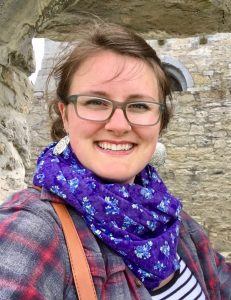 Courtney N. Ryan
Courtney N. Ryan
Receiving her Master of Fine Arts in Ceramics and Sculpture this May, Courtney Ryan is known for her intricate clay sculptures that appear to have emerged organically from their surroundings. She currently resides in Statesboro, Georgia, near Savannah, where she teaches Two-Dimensional and Three-Dimensional design courses as an Instructor of Record at Georgia Southern University. Upon graduation, Courtney intends to continue her studio practice while exhibiting work as she searches for her future career. As an aspiring professor of art, she wants to continue teaching and remain involved within the art world both professionally and academically.
Over the course of her graduate career, Courtney has had the opportunity to travel abroad to experience the Venice Biennale, as well as spend two summers in Ireland on residency through the European Council. As an avid presenter, Courtney has participated in conferences such as SECAC, SLSA, and of course CAA. Last August, she had her first solo exhibition, Domestic Consumption, at Columbus State University, and has since shown her work at other universities including the University of Georgia, Georgia State University, and Augusta University. Featured in Sculpture Magazine as an Honorable Mention for the 2017 Outstanding Student Achievement Award, Courtney continues to push her work into new realms. Currently she is exhibiting in The Delaware Contemporary Museum’s 2017 MFA Biennale: Domestic, as well as an upcoming show-swap with Aalto University in Helsinki, Finland. Having just completed a 40-foot mural and a public arts sculpture, Courtney is also heavily involved in her local community.
Deadlines are Approaching for 2017 CAA Professional-Development Fellowships
posted by CAA — August 30, 2017
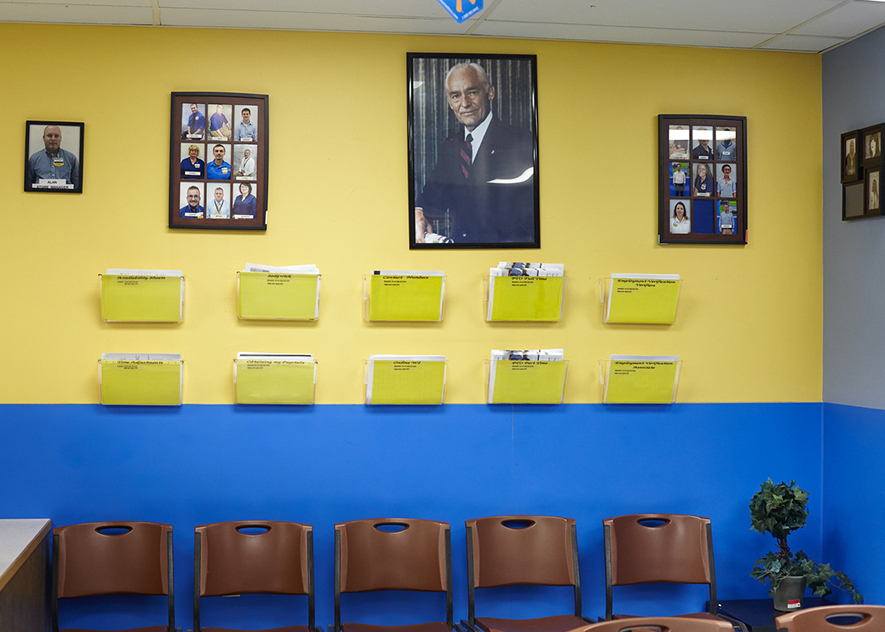
Photography by Daniel Seth Kraus, 2016 Professional-Development Fellowship Awardee
October 2 (PhD candidates) and November 10 (MFA candidates) are the deadlines for the CAA Professional-Development Fellowships. The program supports promising artists, designers, craftspeople, historians, curators, and critics who are enrolled in MFA, PhD, and other terminal-degree programs nationwide.
Fellows are honored with $10,000 grants to support their work, whether it be for job-search expenses or purchasing materials for the studio.
“I remember sitting in my graduate school studio applying for the award. I was day-dreaming about how it could help me be a self-sustaining artist and maybe start my career in teaching. A few months later I received notification of the award and I’m happy to say the grant has helped me enormously with both of my day-dreams, artistic and academic. CAA’s Professional-Development Fellowship for Visual Artists has stabilized a shaky phase of my career and life, continuing an artistic practice after graduate school. The award funds helped me to kick-start my studio space, travel for photography research, and secure teaching positions right out of graduate school. CAA’s support of developing visual artists is certainly outstanding and to an even greater extent, appreciated. I’m happy to now be a CAA member and encourage others to apply for the fellowship without hesitation.” —Daniel Kraus, 2016 Professional-Development Fellowship Recipient
One award will be presented to a practitioner—an artist, designer, and/or craftsperson—and one award will be presented to an art, architecture, and/or design historian, curator, or critic. Fellows also receive a free one-year CAA membership and complimentary registration to the 2018 Annual Conference in Los Angeles, February 21-24. Honorable mentions, given at the discretion of the jury, also earn a free one-year CAA membership and complimentary conference registration.
CAA initiated its fellowship program in 1993 to help student artists and art historians bridge the gap between their graduate studies and professional careers.
2016 Recipients of CAA’s Professional Development Fellowships
posted by Christopher Howard — January 23, 2017
CAA has awarded two 2016 Professional-Development Fellowships—one in visual art and one in art history—to graduate students in MFA and PhD programs across the United States. In addition, CAA has named one honorable mention in art history and two in visual art. The fellows and honorable mentions also receive a complimentary one-year CAA membership and free registration for the 2017 Annual Conference in New York.
Accepting the $10,000 fellowship in visual art is Daniel Seth Krauss, an MFA student in photography in the Tyler School of Art at Temple University in Philadelphia, Pennsylvania. The recipient of the $10,000 fellowship in art history is Sara Blaylock, a doctoral candidate in visual studies at the University of California, Santa Cruz.
The honorable mention for art history goes to Lex Lancaster, a PhD student at the University of Wisconsin, Madison. The two honorable mentions in visual art are Allison Rose Craver, an MFA candidate at Ohio State University in Columbus, and Andrew Jilka, an MFA student at the School of Visual Arts in New York.
Suzanne Preston Blier, president of the CAA Board of Directors, will formally recognize the two fellows and three honorable mentions at the 105th Annual Conference during Convocation, taking place on Wednesday, February 15, 2017, at the New York Hilton Midtown.
CAA’s fellowship program supports promising artists and art historians who are enrolled in MFA and PhD programs nationwide. Awards are intended to help them with various aspects of their work, whether for job-search expenses or purchasing materials for the studio. CAA believes a grant of this kind, without contingencies, can best facilitate the transition between graduate studies and professional careers. The program is open to all eligible graduate students in the visual arts and art history. Applications for the 2017 fellowship cycle will open in the late spring.
FELLOW IN VISUAL ART
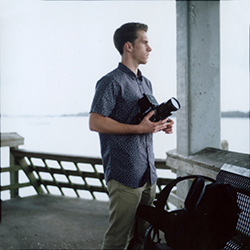 Daniel Seth Kraus
Daniel Seth Kraus
Daniel Seth Kraus‘s work blends historical research with photographic practice to deepen our understanding of people and places. Currently his research investigates faith and work in the American South. Kraus’s work has been featured in numerous print and online publications, including Fraction Magazine, SeeSaw Magazine, Oxford American, and Aint Bad Magazine. His photographs have been exhibited in national and international juried exhibitions, including one at the Morris Museum of Art in Augusta, Georgia. He earned a BFA in photography and a BA in history from the University of North Florida in Jacksonville and is pursuing a MFA in photography at the Tyler School of Art at Temple University in Philadelphia, Pennsylvania.
FELLOW IN ART HISTORY
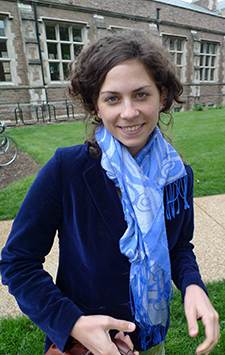 Sara Blaylock
Sara Blaylock
Sara Blaylock will complete her PhD in visual studies at the University of California, Santa Cruz, in spring 2017. To date, the bulk of her research has concerned the experimental film, art, and visual culture of the German Democratic Republic during the 1980s. Her dissertation, “Magnitudes of Dissent: Art from the East German Margins,” focuses on how photography and film, body-based practices, print media, and galleries addressed issues of representation, performativity, and collectivity. It argues that experimental practice in a 1980s GDR was not only an antidote for but also an interpretation of a weakening state—a foil and a mirror to official culture.
Blaylock’s dissertation research has been supported by the German Academic Exchange Service and the Rosa Luxemburg Foundation, as well as by numerous grants from the University of California, Santa Cruz. She has published in numerous academic forums. Most recently, an article appeared in Gradhiva, a French-language journal of art history and anthropology, and Blaylock contributed an essay in both German and English to the catalogue for the exhibition Gegenstimmen. Kunst in der DDR 1976–1989 [Voices of Dissent: Art in the GDR 1976–1989], held at the Martin-Gropius-Bau in Berlin. Another article, “Bringing the War Home to the United States and East Germany: In the Year of the Pig and Pilots in Pajamas,” will appear in Cinema Journal later this year.
Blaylock was recently invited to codirect the International Association for Visual Culture, a scholarly organization that encourages inquiry and debate within the field and that advocates the critical and theoretical expansion of visual-culture studies in academic and artistic venues. She looks forward to helping to advance and strengthen the association’s vision.
HONORABLE MENTIONS IN VISUAL ART AND ART HISTORY
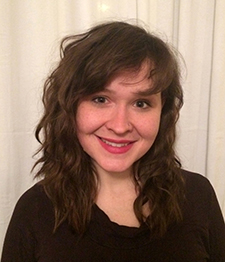 Allison Rose Craver
Allison Rose Craver
Allison Rose Craver will complete her MFA, with a concentration in ceramics, at Ohio State University in in Columbus in May 2017. Craver grew up in East Aurora, New York, and earned a BFA in 2010 from New York State College of Ceramics at Alfred University in Alfred. A year later she studied as a special student at the University of Wisconsin, Madison. Craver has shown her work nationally, including exhibitions at the Archie Bray Foundation for the Ceramic Arts in Helena, Montana, and the Arrowmont School of Arts and Crafts in Gatlinburg, Tennessee. In 2014 she was invited to demonstrate in the Process Room at the annual National Council on Education for the Ceramic Arts conference in Milwaukee. Craver’s work is process driven, using ceramics materials in conjunction with fiber and found objects to explore the nature of care and work.
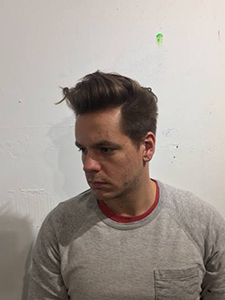 Andrew Jilka
Andrew Jilka
Andrew Jilka was born in in 1986 to a working-class home in Salina, Kansas. The son of a bus driver and a lunch lady, Jilka has been employed as a fast-food worker, a cigarette warehouse stocker, a furniture deliveryman, a Hewlett-Packard call-center representative, a bartender, and later an assistant to the artist Tom Sachs. After selling his Camaro, he enrolled at the University of Kansas in Lawrence, where he received a BFA in printmaking in 2009, as well as a scholarship to study printmaking at Hongik University in Seoul, Korea. Jilka’s work is greatly influenced by the instabilities and anxieties of his Midwestern upbringing. His painting is an attempt to reconcile the “high” of the history and lineage of contemporary painting with the Walmart culture he was raised in. Jilka approaches painting with both the deference of Brahms and the irreverence of the Ramones—and perhaps a touch of Taylor Swift. His work has been shown in group and solo exhibitions in Kansas City, Atlanta, New York, and Seoul. He is currently an MFA candidate at the School of Visual Arts in New York.
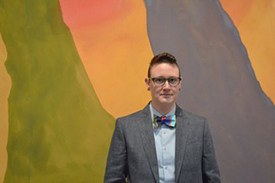 Lex Lancaster
Lex Lancaster
Lex Morgan Lancaster is a PhD candidate in the Department of Art History at the University of Wisconsin, Madison, where they will complete their degree in May 2017. Lancaster’s dissertation, “Dragging Away: Queer Abstraction in Contemporary Art,” investigates abstraction as a tactic of queering in the work of contemporary artists who deploy nonrepresentational form for political ends. Their related article, “Feeling the Grid: Lorna Simpson’s Concrete Abstraction,” was published in ASAP/Journal (2017), and “The Wipe: Sadie Benning’s Queer Abstraction” is forthcoming in Discourse: Journal for Theoretical Studies in Media and Culture. Lancaster is chairing the session on “New Materialisms in Contemporary Art” at CAA’s 2017 Annual Conference in New York.
Lancaster received their BA in art history from Case Western Reserve University in Cleveland, Ohio. They have assisted with exhibitions and public programs at the Cleveland Museum of Art as coordinator of teen programs and intern to the curator of contemporary art, and at the National Gallery of Art in Washington, DC, as a paid summer intern in the Department of Photographs. At the University of Wisconsin, Madison, Lancaster curated the exhibition Our House! Unsettling the Domestic, Queering the Spaces of Home at the Chazen Museum of Art.
CAA Seeks Mock Interviewers
posted by CAA — September 26, 2016
 Participants in the Interview Hall at the 2016 Annual Conference (photograph by Bradley Marks)
Participants in the Interview Hall at the 2016 Annual Conference (photograph by Bradley Marks)CAA’s Student and Emerging Professionals Committee seeks established professionals to volunteer as practice job interviewers for the Mock Interview Sessions at the 2017 Annual Conference in New York. Participating as an interviewer is an excellent way to serve the field and to assist with the professional development of the next generation of artists and scholars.
In these sessions, interviewers pose as a prospective employer, speaking with individuals in a scenario similar to the Interview Hall at the conference. Each session comprises approximately 10–15 minutes of interview questions and a quick review of the application packet, followed by 5–10 minutes of candid feedback. Whenever possible, the committee matches interviewers and interviewees based on medium or discipline.
Interested candidates must be current CAA members and prepared to give six successive twenty-minute interviews with feedback in a two-hour period during one of the following times:
Thursday, February 16: 11:30AM–1:30 PM
Thursday, February 16: 3:00–5:00 PM
Friday, February 17: 9:00–11:00 AM
Friday, February 17: 2:00–4:00 PM
Interviewers should be art historians, art educators, designers, museum-studies professionals, critics, curators, and studio artists with significant experience in their fields or experience on a search committee.
You may volunteer for one, two, three, or all four Mock Interview Sessions. All sessions occur in the SEPC Lounge. Please send your name, affiliation, position, contact information, and the days and times that you are available to Megan Koza Mitchell, chair of the Student and Emerging Professionals Committee. Deadline: January 31, 2017.
The Mock Interview Sessions are not intended as a screening process by institutions seeking new hires.
Practice Your Interviewing Technique at the New York Conference
posted by CAA — September 22, 2016
In a competitive job market, everyone could use the opportunity to get feedback on interviewing and presentation. Take advantage of this opportunity to have a twenty-minute interview/mentoring session from a seasoned professional.
Students and emerging professionals have the opportunity to sign up for a twenty-minute practice interview at the 2017 Annual Conference in New York. Organized by the Student and Emerging Professionals Committee, the Mock Interview Sessions give participants the chance to practice their interview skills one on one with a seasoned professional, improve their effectiveness during interviews, and hone their elevator speech. Interviewers also provide candid feedback on application packets. Mock Interview Sessions are offered free of charge, but you must be a CAA member to participate. Sessions are filled by appointment only and scheduled within the SEPC Lounge for the following times:
Thursday, February 16: 11:30 AM–1:30 PM
Thursday, February 16: 3:00–5:00 PM
Friday, February 17: 9:00–11:00 AM
Friday, February 17: 2:00–4:00 PM
Conference registration, while encouraged, is not necessary to participate. To apply, fill out the Google Registration Form. You may enroll in one twenty-minute session. The deadline to register is February 6, 2017. You will be notified of your appointment day and time by email. Please bring your application packet, including cover letter, CV, and other materials related to jobs in your field. The Student and Emerging Professionals Committee will make every effort to accommodate all applicants; however, space is limited. There will be VERY limited registration onsite. If you have any questions, please email the Student and Emerging Professionals Committee.



